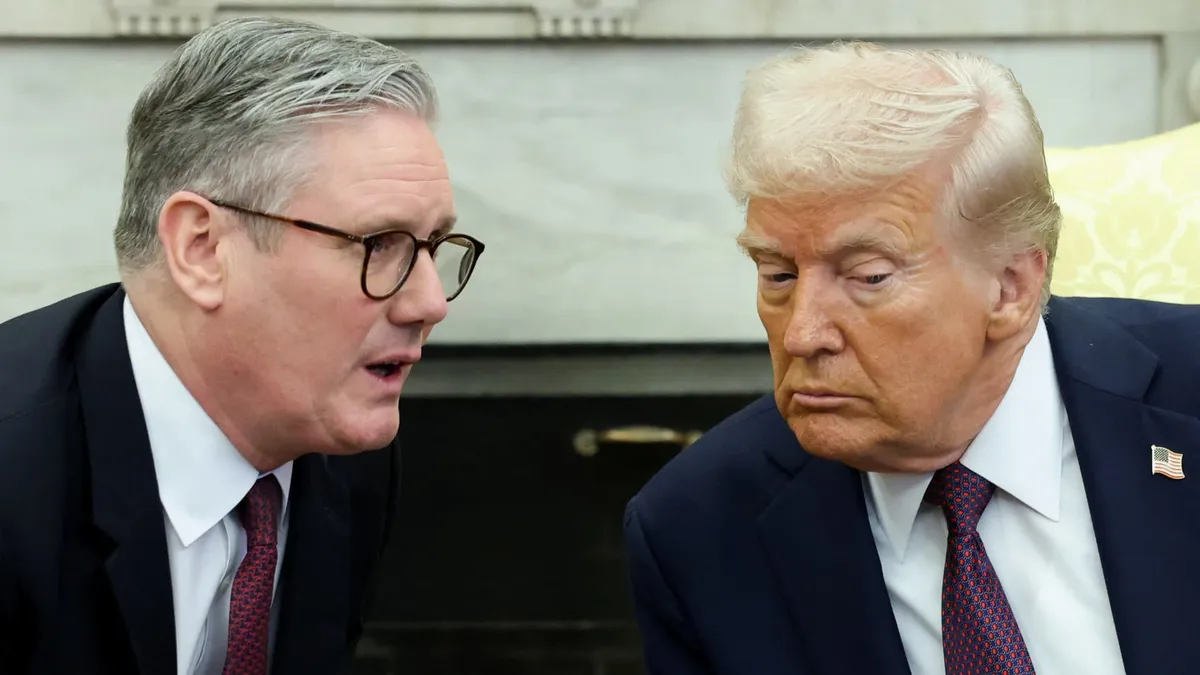
The U.K. economy experienced a sharp contraction of 0.3% in April, as revealed by data from the Office for National Statistics (ONS) released on Thursday. This decline followed a modest growth of 0.2% in March and was greater than the 0.1% fall that economists had anticipated. The downturn in April is attributed to the impact of global trade tariffs and domestic tax increases that have created uncertainty for businesses across the nation.
The decline in economic activity coincided with U.S. President Donald Trump's announcement of global trade tariffs affecting various trading partners. This move has contributed to widespread uncertainty among businesses. The ONS reported a significant drop in industrial production and services output for the month of April, although construction output showed growth. Notably, April marked the largest monthly decline in goods exports to the United States, with a record drop attributed to the new tariffs, according to Liz McKeown, director of economic statistics at the ONS.
Despite the 10% reciprocal tariff imposed by Trump on U.K. goods, Britain has managed to maintain a relatively balanced trading relationship with the U.S. In comparison, the European Union faced a hefty 20% tariff on its exports to the States. Following these developments, the U.K. has successfully negotiated a trade deal with the U.S., becoming the first nation to do so as broader trade discussions continue.
In addition to the effects of international tariffs, domestic tax increases have significantly impacted the U.K. economy. Businesses have faced rising national insurance contributions and an increase in the minimum wage, effective from the beginning of April. Furthermore, a temporary tax break on property purchases ended in March, leading to a dramatic 63.5% decrease in residential property transactions in April, as buyers rushed to finalize purchases before the tax change took effect.
U.K. Chancellor Rachel Reeves described the latest growth data as "clearly disappointing," which contradicts her recent commitment to deliver economic renewal through government spending plans announced earlier in the week. In an interview with Sky News, Reeves acknowledged the challenges posed by April's economic climate, marked by significant uncertainty surrounding trade tariffs. "If you dig into those GDP numbers today, you can see exports weakening and production declining due to global tariff uncertainties," she stated.
Economists predict that growth will remain sluggish for the remainder of the year, with the Bank of England projecting a modest 1% growth in 2025. April's disappointing 0.3% drop in GDP sets a concerning tone for the upcoming months. James Smith, a developed markets economist at ING, commented that the recent figures have been volatile, partly due to businesses frontloading activities prior to the implementation of tariffs. He noted that after a robust first quarter, a weakening job market and ongoing economic uncertainty are likely to lead to slower growth rates.
Overall, the April figures indicate a challenging environment for the U.K. economy, with expectations of growth ranging between 0.1% and 0.2% for the second quarter, a significant decrease from the surprising 0.7% growth observed in the first quarter.